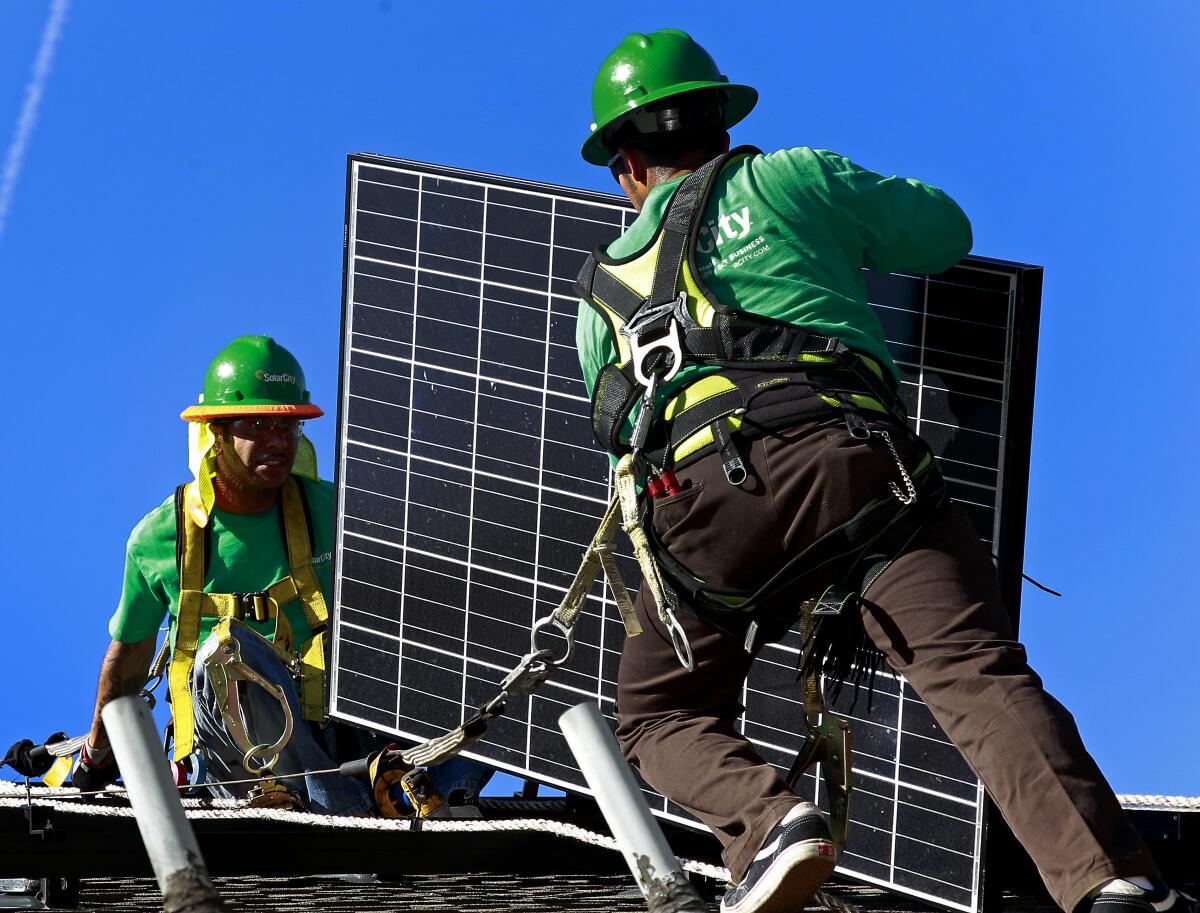Tesla offers no-contract solar panel rentals, with a catch

Tesla Inc.’s latest bid to revive its foundering solar division may sound familiar: rentals.
The Palo Alto company is now offering panel packages with “no long term contract” as part of a relaunch announced Sunday by Chief Executive Elon Musk. But there would be a $1,500 charge if the customer opts out and requests the system’s removal.
The rental option harks back to a leasing product popularized by SolarCity Corp., the debt-burdened former rooftop king that Tesla bought for $2.6 billion in November 2016. The leasing strategy propelled SolarCity’s growth, but SolarCity borrowed heavily to support it.
After the acquisition, Tesla prioritized outright sales in an effort to boost profitability. It ceased door-to-door marketing, ended a partnership with Home Depot Inc. and cut jobs. The company recently shifted to offering standardized panel systems online, rather than the bespoke arrays that have driven the rooftop-solar industry’s U.S. growth. All that has eroded its market share.
Tesla’s solar relaunch comes less than a month after the company reported its third consecutive quarterly decline in solar installations. The automaker deployed just 29 megawatts in the second quarter — its smallest quarter yet. At its height, SolarCity installed more than 200 megawatts over three months.
“It seems clear that Tesla is now trying to rebound their growth volumes having hit record lows,” said Michelle Davis, senior solar analyst at Wood Mackenzie Power & Renewables. “Tesla will need to prove they can manage their financials successfully this time around.”
The company foreshadowed the new rental option in its second-quarter investor letter last month: “We are in the process of improving many aspects of this business to increase deployments.”
Tesla shares rose 3.4% to $227.45 as of about 11 a.m. Pacific Time.
The monthly payment option includes installation costs as well as support and maintenance, according to Tesla’s website. It’s available in six U.S. states, and will cost $50 monthly for small systems in Massachusetts and New Jersey and $65 monthly for such units in California.
“Still better to buy, but the rental option makes the economics obvious,” Musk said in a tweet Sunday.
More to Read
Inside the business of entertainment
The Wide Shot brings you news, analysis and insights on everything from streaming wars to production — and what it all means for the future.
You may occasionally receive promotional content from the Los Angeles Times.










